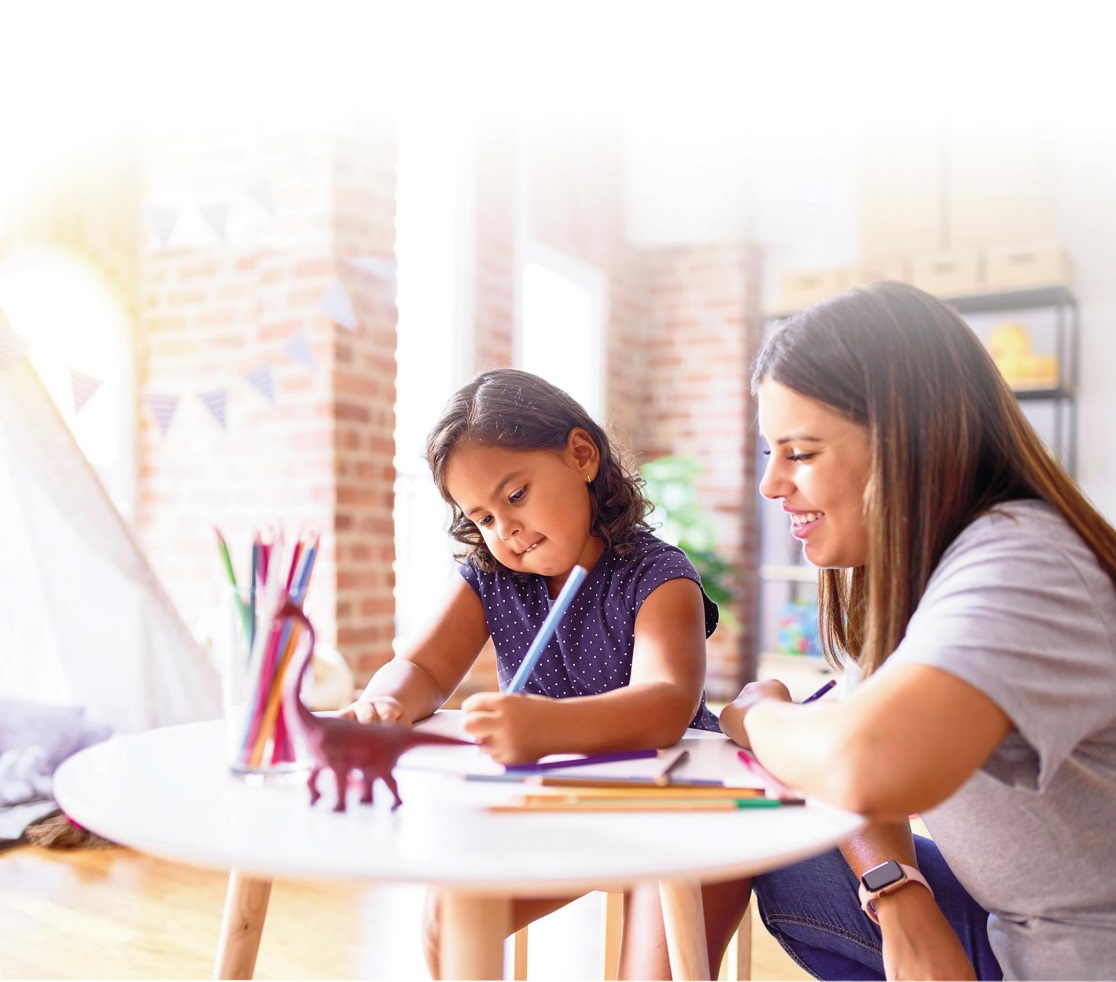HelPing PrePAre Your BilinguAl CHild witH develoPmentAl delAYs for sCHool
HELPING PREPARE YOUR BILINGUAL CHILD WITH DEVELOPMENTAL DELAYS FOR SCHOOL
BY ALMA L. CONTRERAS-VANEGAS PH.D., CORINNA VILLAR COLE, PH.D.
BY ALMA L. CONTRERAS-VANEGAS PH.D., CORINNA VILLAR COLE, PH.D.
Every parent wants to prepare their child for the first day of school, but what if the child is born at 25 weeks (about fiveand-a-half months) gestation with developmental delays?
As a first-time mother, I welcomed my new role, but as I delivered my daughter Kiwi (pseudonym), I was unexpectedly inducted into two different worlds. The world of first-time parents and the world of parenting a child with disabilities.
As a former bilingual schoolteacher and current bilingual teacher educator at a university, I knew I wanted to raise bilingual children, but despite my experience with bilingualism, I started to question this decision for my child with developmental delays. After a speech pathologist and a vision specialist suggested that I reconsider my decision to raise Kiwi bilingually, I conducted some research of my own which demonstrated that bilingualism was beneficial, no matter what type
of disability a child had. As a result of this quest, my husband and I decided to teach her English and Spanish. Kiwi's grandparents were her caregivers and spoke Spanish with her. Therefore, to communicate her basic needs, it was important for Kiwi to learn the language of her grandparents. Even though her therapists and doctors spoke English, the professionals responsible for her care supported our efforts of raising a bilingual child.
Be Positive
When Kiwi turned three years old, she started the Preschool Program for Children with Disabilities (PPCD). Before beginning PPCD, special education examiners administered Kiwi many assessments that highlighted her struggles and deficits. As the examiners completed her paperwork, they pointed out that Kiwi's case was extremely complicated. As her mother, I focus on her potential – how intelligent she is and how I am going to prepare her for school. I did not want others to concentrate on her deficits; therefore, my bilingual educator training helped me as I set out to teach Kiwi the colors, shapes, and numbers before entering PPCD.
DRAWING CONCLUSIONS: "I conducted some research which demonstrated that bilingualism was beneficial, no matter what type of disability a child had. Even though her therapists and doctors spoke English, the professionals responsible for her care supported our efforts of raising a bilingual child."
